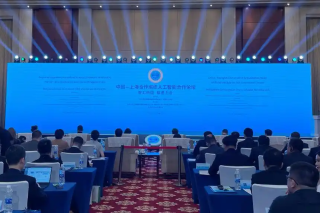Requirements for foreign adopters and adoptees
I. Eligibility of foreign adopters
Age requirements:
Both parents must be between the ages of 30 and 50. Those couples who apply to adopt a special needs child must be between the ages of 30 and 55.
Marriage requirements:
Chinese law permits adoption by married couples, defined as one man and one woman. They must adopt the child jointly. In addition, they must have been married at least two years. If either person has previously divorced, the couple must have been married at least five years. No more than two divorces are allowed.
China Centre for Children's Welfare and Adoption (CCCWA) shall not identify prospective adoptive referrals for homosexuals. Legally, the Marriage Law of the People's Republic of China recognizes only families formed by marriage of opposite sexes and does not recognize the legitimacy of homosexual families, and the homosexual families are, therefore, not protected by laws.
Income requirements:
At least one member of the couple must have stable employment. The total value of family assets must be at least $80,000. The family's annual income equals at least $10,000 for each family member in the household (including the child to be adopted). Annual income excludes welfare, pensions, unemployment insurance, Government subsidies and the like. Both prospective parents must be high school graduates or have vocational training equivalent to a high school education.
Health requirements:
Both partners must be physically and mentally fit, with none of the following conditions:
1) AIDS;
2) Mental disability;
3) Infectious disease that is actively contagious;
4) Blind in either eye;
5) Hearing loss in both ears or loss of language function (those adopting children with hearing or language function loss are exempted from this requirement);
6) Non-function or dysfunction of limbs or trunk caused by impairment, incomplete limbs, paralysis or deformation;
7) Severe facial deformation;
8) Severe diseases that require long-term treatment and that may affect life expectancy, including malignant tumors, lupus, nephrosis, epilepsy, etc;
9) Major organ transplant within ten years;
10) Schizophrenia;
11) Severe mental disorders requiring medication for more than two years, including depression, mania, or anxiety neurosis;
12) Body Mass Index (BMI) of 40 or more.
*For those disabled who can look after themselves and have the ability of bringing up and educating the prospective adopted children, China Centre for Children's Welfare and Adoption(CCCWA) shall identify appropriate adoptive referrals for them.
Other requirements:
The family must have fewer than five children under the age of 18, and the youngest is at least one year old (those adopting children with special needs are exempted from this requirement).
Checking whether the adopters have ever been subjected to any criminal punishment is an important part for evaluating their ability to bring up and educate the adoptee. Neither partner may have a significant criminal record, and both must have a history of honorable behavior and good moral character with no evidence of:
1) Domestic violence, sexual abuse, abandonment or abuse of children;
2) Use of narcotics or any potentially addictive medication prescribed for mental illness;
3) Alcohol abuse, unless the individual can show she/he has been sober for at least ten years.
Note: Applications from persons with past criminal records will be considered on a case-by-case basis if the individual has fewer than three minor criminal convictions (none in the last ten years) and fewer than five minor traffic violations.
The prospective parents must demonstrate the ability to provide a warm family environment capable of meeting the needs of an orphaned child and providing for her/his development, and an understanding of the special risks (including potential diseases, developmental delays, and post-placement maladjustment) that could come with inter-country adoption.
II. Eligibility of adoptees
According to Article 4 in Adopting Law of the People's Republic of China, minors under the age of 14, as enumerated below, may be adopted:
(1) Orphans bereaved of parents, refers to those children whose biological parents have already died or have already been declared died by the court;
(2) Abandoned infants or children whose biological parents cannot be ascertained or found, refers to those children or infants who are abandoned by their biological parents or whose biological parents cannot be found.
(3) Children whose parents are unable to rear them due to unusual difficulties, refers to those children whose biological parents are in extreme poverty that do not have ability to rear them because of disability, serious illness, or some other reason.

Copyright ©
Tianjin Municipal Government. All rights reserved. Presented by China Daily.
京ICP备13028878号-35



